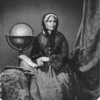Java on the Way Around the World: European Travellers in the Dutch East Indies and the Transnational Politics of Imperial Knowledge Management, 1850-1870
DOI:
https://doi.org/10.18352/bmgn-lchr.10742Abstract
This article examines contemporary Dutch reactions to the travels in the Dutch East Indies of three non-Dutch Europeans and internationally popular midnineteenth- century travel writers: the Austrian Ida Pfeiffer, the German Friedrich Gerstäcker and the French Ludovic de Beauvoir. Their journeys were published in real time by the press both on Java and in the Netherlands, and the subsequent travel books were widely discussed in Dutch newspapers and specialised journals. This article examines this reporting and the ensuing public debates as attempts to control the flow of information from the colony, a process in which both the colonial authorities and opposition parties saw an opportunity to mobilise popular foreign authors in support of their respective political agendas. Building on recent work on imperial knowledge networks and using the example of popular travel writing, this article argues that those circuits often had a more transnational and trans-European character than commonly acknowledged.
In dit artikel worden eigentijdse Nederlandse reacties op de reizen van drie Europese auteurs in Nederlands-Indië bestudeerd. Deze schrijvers van reisverhalen – de Oostenrijkse Ida Pfeiffer, de Duitser Friedrich Gerstäcker en de Fransman Ludovic de Beauvoir – genoten in het midden van de negentiende eeuw internationale faam. Zowel de Javaanse als de Nederlandse pers plaatsten actuele berichten over hun verblijven in de Nederlandse kolonie, en hun reisverslagen werden bediscussieerd in een groot aantal Nederlandse kranten en gespecialiseerde tijdschriften. Deze verslaggeving en de daarop volgende publieke debatten worden in dit artikel benaderd als pogingen om de informatiestromen vanuit de kolonie te controleren. Zowel de koloniale autoriteiten alsook de oppositiepartijen zagen het hierbij mogelijk om populaire buitenlandse auteurs voor hun politieke agenda’s te mobiliseren. Voortbouwend op recent onderzoek naar koloniale kennisnetwerken en gebruikmakend van het voorbeeld van populaire reisverhalen, betoog ik in dit artikel dat deze netwerken vaak een meer transnationaal en Europees karakter hadden dan in het algemeen wordt erkend.
This article is part of the special issue ‘The Dutch Empire and Europe. Demands and Opportunities’.
Dit artikel maakt deel uit van het themanummer ‘The Dutch Empire and Europe. Demands and Opportunities’.
Downloads

Published
Issue
Section
License
Authors who publish with this journal agree to the following terms:
a) Authors retain copyright and grant the journal right of first publication with the work simultaneously licensed under a Creative Commons Attribution 4.0 International (CC BY 4.0) that allows others to share the work with an acknowledgement of the work's authorship and initial publication in this journal.
b) Authors are able to enter into separate, additional contractual arrangements for the non-exclusive distribution of the journal's published version of the work (e.g., post it to an institutional repository or publish it in a book), with an acknowledgement of its initial publication in this journal.
c) Authors are permitted to post their work online (e.g., in institutional repositories or on their website) prior to and during the submission process.
Authors are explicitly encouraged to deposit their published article in their institutional repository.








